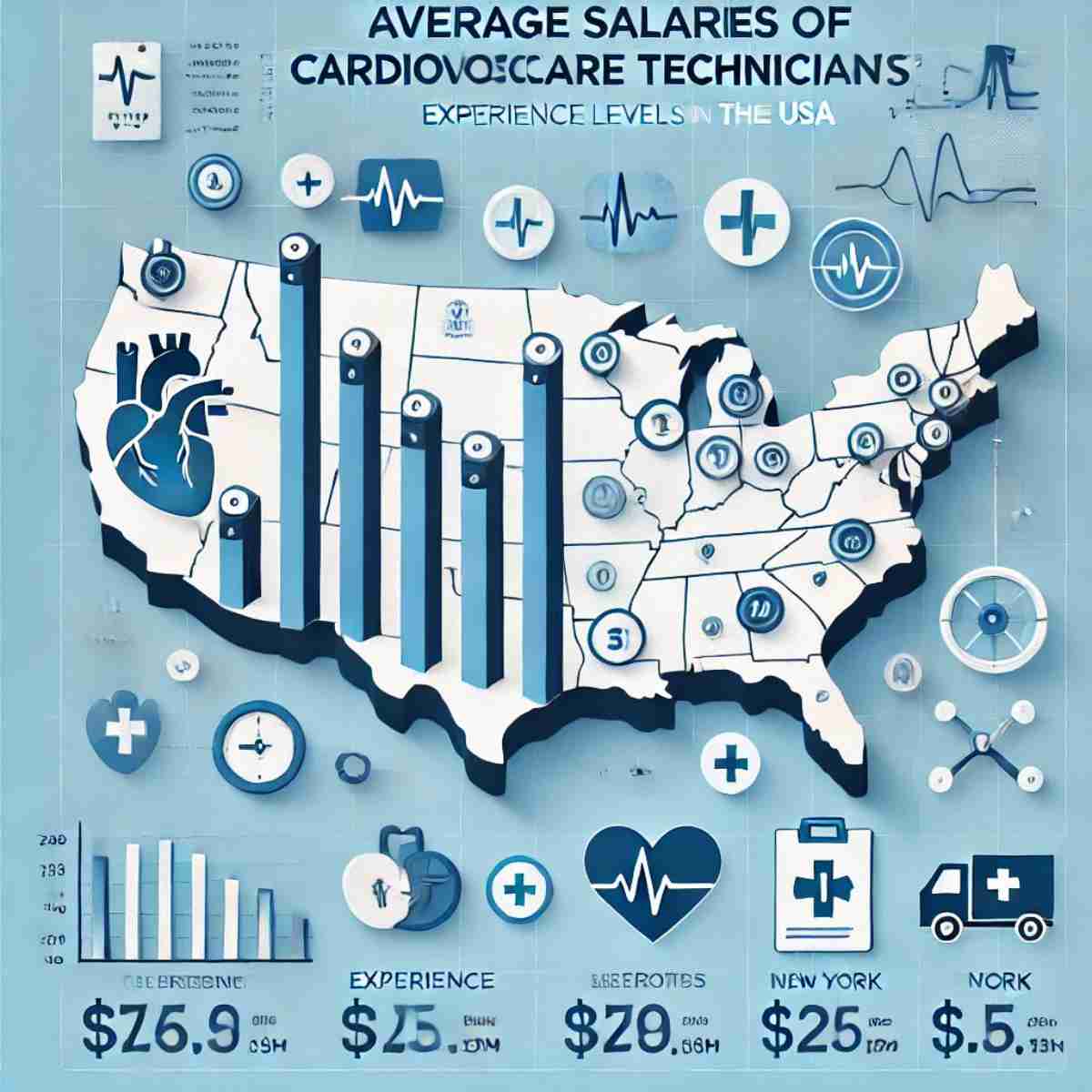Crucially important in the healthcare sector are cardiovascular technicians, sometimes referred to as cardiovascular technologists. Using specialist tools, they help to diagnose and treat heart and vascular diseases. If you are thinking about working in this industry, you really should be aware of the pay range. We will explore the elements influencing cardiovascular technician wages in this blog article, offer analysis of compensation ranges, and stress strategies for best income maximizing.
1. What Is a Cardiovascular Technician?
Working with doctors, cardiovascular technicians do diagnostic tests including echocardiograms, stress tests, and vasual ultrasounds. They guarantee patient comfort during treatments and test accuracy.
2. Average Cardiovascular Technician Salary
Experience, geography, and specialty all affect the pay for cardiovascular technicians. The average incomes are broken out here:
| Category | Average Salary (USD) |
|---|---|
| Entry-Level (0-2 Years) | $40,000 – $50,000 |
| Mid-Level (3-5 Years) | $50,000 – $65,000 |
| Experienced (5+ Years) | $65,000 – $80,000 |
| Specialized Fields (Cath Lab, Echo) | $70,000 – $90,000 |
3. Factors Affecting Cardiovascular Technician Salary
The income of cardiovascular technologists is influenced by several elements:
- Experience:
- Entry-level technicians earn less than those with years of experience.
- Location:
- Salaries vary significantly by state or city. Urban areas often offer higher pay due to higher demand and cost of living.
- Specialization:
- Technicians in specialized areas, such as echocardiography or cardiac catheterization, tend to earn more.
- Certifications:
- Holding certifications like Registered Cardiovascular Invasive Specialist (RCIS) or Registered Diagnostic Cardiac Sonographer (RDCS) can boost earnings.
- Workplace Setting:
- Technicians in hospitals may earn differently compared to those in private clinics or diagnostic labs.

4. Top-Paying States for Cardiovascular Technicians
Demand and cost of living drive some jurisdictions to provide better pay. The following states pay the highest for cardiovascular technicians:
| State | Average Salary (USD) |
|---|---|
| California | $85,000 |
| New York | $80,000 |
| Texas | $78,000 |
| Florida | $75,000 |
| Massachusetts | $74,000 |
5. How to Increase Your Salary as a Cardiovascular Technician
Think about these techniques if you want to enhance your income possibilities:
- Gain Experience:
Over time, your experience will naturally lead to higher pay. - Pursue Certifications:
Advanced certifications can make you stand out to employers. - Specialize:
Focus on high-demand areas like cardiac catheterization or echocardiography. - Relocate:
Consider moving to states or cities with higher salary averages. - Continuing Education:
Stay updated with the latest technologies and techniques in cardiovascular care.
6. Benefits Beyond Salary
Apart from their pay, cardiovascular technicians also commonly get extensive perks including:
- Health insurance
- Paid time off (PTO)
- Retirement plans
- Professional development opportunities
Overview
Apart from a good pay, a job as a cardiovascular technician presents an opportunity to significantly influence patients’ life. Understanding the elements influencing salary and acting to improve your credentials will help you to guarantee a successful career in this important healthcare sector. The possibility for development and specialization makes this a great professional path regardless of your level of starting or advancement desire.
Related Article: Occupational Therapy Salary
